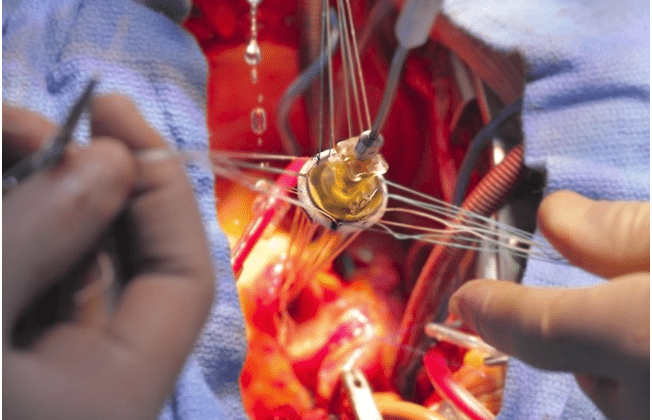
Risks, Precautions, Procedure, and Tips for Valve Replacement Surgery
A person’s heart’s four valves are involved in the process of blood supply in the liver. However, one or more of the valves may stop functioning due to a disease or a hereditary condition.
In this situation, the patient will need valve replacement surgery to recover from this condition. Valve replacement surgery, according to the best Cardiologist in Aurangabad, is a difficult operation.
As a result, understanding the basics will assist a patient in setting goals and looking forward to a better future.
Valve Replacement Types
The process for replacing a valve can be divided into two groups. There are the following:
- Biological Valves
Animal tissues are commonly used to create biological valves. They have a ten to twenty-year lifespan on average. The best thing about these valves is that they don’t cause blood clots after surgery. Furthermore, you will not need blood thinners for them.
- Valves that operate mechanically
Metal, carbon, or plastic may be used to make mechanical valves. They do outlast their biological predecessors in terms of longevity. These valves, on the other hand, may often cause clots. As a result, you’ll need to take blood thinners on a daily basis.
Procedure for Valve Replacement Surgery
The basic treatment for replacing valves is open-heart surgery, which is performed by doctors. It lasts two to four hours, according to reports from a Cardiologist in Aurangabad. The surgical procedure is broken down into the following stages.
- Via general anaesthesia, the doctor can induce a sleep-like state in the patient. He or she would then cut a six to eight-inch hole in your chest.
- He would then break open the individual’s breastbone and connect his or her heart to a heart-lung system. It will then take care of your heart’s blood pumping operation.
- The surgeon will now remove the badly deteriorated heart valve and replace it with a new one.
- The heart will then be placed in its correct location, restarted, and the chest incision will be sewn closed.
Precautionary measures
The valve replacement process, as previously mentioned, is very complicated. As a result, patients may be required to obey certain precautionary instructions, which could improve the surgery’s success rate. Mentioned below are a few of them.
- Before the surgery, tell your doctor about any medications you’re taking for other health issues.
- Inquire about vitamin supplements and whether or not you should take them before the procedure.
- Smoking and drinking should be avoided for at least a week before the operation.
- Maintain a balanced, vegetable-rich diet.
- Ask your doctor if you can stop eating at least a few hours before the surgery.
- Wear loose-fitting, comfortable clothes.
- Make an effort to relax as much as possible.
What are the Surgery’s Risks and Side Effects?
If you choose the best Cardiologist in Aurangabad, you are unlikely to experience any negative side effects. However, in rare situations, the following problems can arise:
- Thrombosis (blood clots) in the heart
- Infection in the vicinity of the incision
- Kidney-related issues that could last several days
- Bleeding (might occur right after the surgery)
- Heart rhythm irregularity
- The new valve’s point of failure is that it’s wearing out faster than anticipated.
- Appetite loss.
- Constipation is a common complaint among people.
- Anxiety, depression, and irritability are all symptoms of severe mood swings.
- a stroke
When Do You Seek Medical Assistance?
If you are having any of the following symptoms, you should seek medical advice from a Cardiologist in Aurangabad.
- Shortness of breath that gets worse after a short period of time working
- Dizziness or chest pain ranging from moderate to extreme
- Fever (a temperature of more than 100.40 degrees Fahrenheit)
- Pain that is getting worse on a daily basis
- Fluid or pus is leaking from the incision site.
Tips for Improving The Recovery
You will need to change your lifestyle as much as possible after the surgery. Here are a few pointers that may be useful to you.
- Fully adhere to your diet plan. If you want to add something new to it, make sure to consult the doctor first.
- Picking up large items should be avoided for at least four to six months after surgery.
- Take your medicines on a daily basis.
- Make it a habit to go for a light walk every day to keep your heart healthy.
- If you want to start a light exercise regimen, talk to your doctor first.
Conclusion
It can take some time for you to resume your normal activities after your surgery. So, do your best to make the most of the time and get as much rest as you can. After that, you will start doing light exercises to acclimate your heart to your new way of life.
Heart attacks may strike unexpectedly and without warning. As a result, surviving it becomes very difficult for a human. It is not, however, impossible. You will get through adversity if you remain calm and obey certain guidelines.
You will learn about such suggestions in this post, which were provided by the best Cardiologist in Aurangabad. So, hopefully, these will be useful to you and will assist you in surviving the unforeseen disaster.










